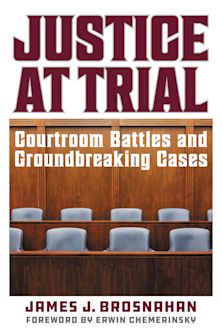- Home
- ACADEMIC
- Law
- United States Law
- Legal Scholarship, Microcomputers, and Super-Optimizing Decision-Making
Legal Scholarship, Microcomputers, and Super-Optimizing Decision-Making
Legal Scholarship, Microcomputers, and Super-Optimizing Decision-Making
This product is usually dispatched within 2-4 weeks
- Delivery and returns info
-
Flat rate of $10.00 for shipping anywhere in Australia
You must sign in to add this item to your wishlist. Please sign in or create an account
Description
An exciting aspect of contemporary legal scholarship is a concern for law from a global perspective across all legal fields. The book draws upon examples from North America, Western Europe, Africa, Asia, Eastern Europe, and Latin America. It refers to the basic private law fields of torts, property, contracts, and family law. It also refers to the basic public law fields of constitutional law, administrative law, criminal law, and international law. It analyzes diverse legal policy problems from a perspective that is designed to produce solutions whereby conservatives, liberals, and other major viewpoints can all come out ahead of their best initial expectations simultaneously. Such solutions can be considered an important part of an innovative concept of justice that emphasizes being effective, efficient, and equitable simultaneously, rather than compromising on any of those justice components.
Another exciting aspect of contemporary legal scholarship is a concern for the use of modern technology in the form of microcomputer software that can be helpful in law teaching, practice, and research. Computer-aided instruction can supplement the case method by using what-if analysis to make changes in the goals to be achieved, alternative decisions available for achieving them, the factual relations, and other inputs to see how the decisions might change with changes in those inputs. Computer-aided law practice can be helpful in counseling, negotiation, mediation, case analysis, legal policy evaluation, and advocacy. Computer-aided research can be helpful in testing deductive or statistical models to determine how well they can explain variance across the judicial process or other legal processes.
Table of Contents
The Law of Developing Nations and Super-Optimum Solutions
Private Law Problems of Person-to-Person Relations
Public Law Problems of Government-to-People Relations
Justice, SOS, and Legal Policy Analysis
Justice and Super-Optimizing Analysis
The Need for Improved Legal Policy Analysis in Developing and Industrialized Nations
Microcomputers and Teaching Law
Case-Method Law Teaching
Clinical Legal Education
Legal Terminology Analysis
Studying the Judicial Process
Probabilities and Trial Behavior
Sensitivity Analysis
What Is New in Legal Analysis Technology?
Bibliography
Index
Product details
| Published | 30 Oct 1993 |
|---|---|
| Format | Hardback |
| Edition | 1st |
| Extent | 232 |
| ISBN | 9780899304441 |
| Imprint | Praeger |
| Dimensions | 235 x 156 mm |
| Publisher | Bloomsbury Publishing |



































